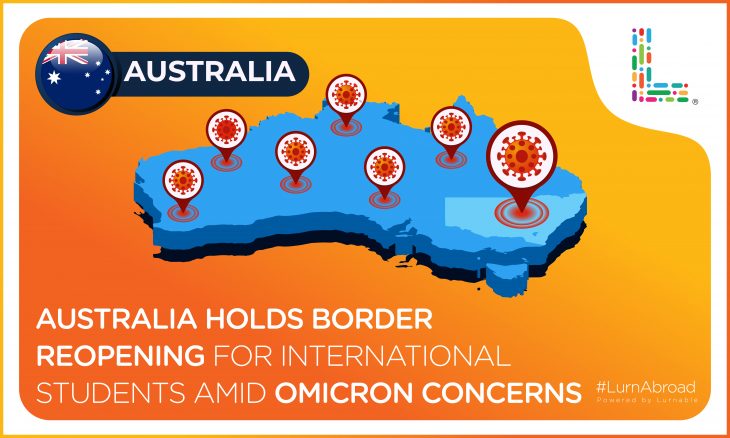The reports of the new Omicron coronavirus variant in South Africa have renewed the worries for the entire world. The strain has already been detected in other countries such as the UK, the Netherlands, Hong Kong, Israel, and Canada. Scientists in South Africa state that the variant has a far greater number of mutations compared to earlier ones. It could send millions back into lockdowns and even dent the global recovery.
Australia has decided to delay its border reopening by two weeks after the first cases of Omicron have been reported in the country. The situation spells a fresh wave of concerns for international students looking forward to returning to Australian universities. Although the picture is not clear yet, short-term measures are essential to prevent a massive outbreak.
CURRENT TRAVEL RESTRICTIONS IN AUSTRALIA
Australian Prime Minister Scott Morrison stated that the country will not reopen for international skilled and student cohorts, working holidaymakers, and provisional family visa holders until December 15. The objective of the temporary pause is to facilitate the gathering of the information required for understanding the variant better. It entails finding facts about the range of illness, level of transmission, and efficacy of the vaccine.
As of now, the border is already closed to international travellers, except for fully-vaccinated citizens, permanent residents, and immediate family members. Likewise, fully vaccinated travellers from New Zealand and Singapore can travel to Australia. Flyers need to show a negative PCR test report and complete declaration forms stating their vaccination status. They also have to confirm compliance with the health requirements of the state and territory of stay.
Victoria and New South Wales have already initiated 72 hours of isolation requirements for travellers under the new state public health requirements. Other states require 14 days of managed quarantine. Additionally, traveller cap arrangements are already in place.
NEW RESTRICTIONS FOR TRAVELLERS FROM DANGER ZONES
Apart from the current restrictions on international travellers who are not citizens or permanent residents of Australia, or their immediate families, the government has new ones. Anyone who has been in a danger zone will not be allowed to enter Australia. These include African countries where the new variant has been detected. The countries are South Africa, Zimbabwe, Botswana, Namibia, Lesotho, Eswatini, Malawi, Seychelles, and Mozambique.
Further, all flights from these countries will be suspended for a period of 14 days as a precautionary measure. Travellers from these countries who have already landed in Australia must immediately get tested and isolate themselves. They will have to abide by the jurisdictional quarantine requirements as well. The restrictions apply to international students and skilled migrants travelling from safe zones established with New Zealand, Japan, the Republic of Korea, and Singapore, who have travelled to these nine countries within the past two weeks. The unprecedented delay may affect the international education segment if the variant ends up being a dangerous one. The return of international students in Australia is worth about a whopping 35 billion Australian dollars a year to the economy.

If you are considering studying abroad why don’t you discuss your prospects and opportunities with experts at Lurnable’s dedicated study abroad counselling division LurnPathways?





